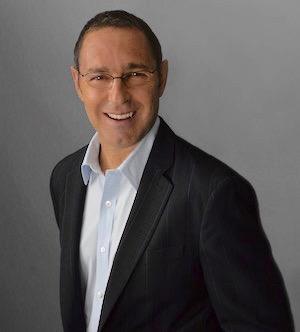Why This MD Believes That Exercise Doesn’t “Cause” Weight Loss
Of the many myths about what will or won’t cause weight loss, functional medicine pioneer and Wellness Council member Frank Lipman, MD, says there are two—exercise and calorie counting—that are just plain busted. If you're looking to separate the facts from the claims, here’s the holistic approach he recommends instead.
One the most common misperceptions I hear from my patients is that if you just burn more calories than you consume, you'll lose weight.
That sounds simple enough, but there's a problem with the calories in-calories out model: It doesn't work. Even if you're hitting the gym regularly, if you don't address your diet, you're going to be frustrated with your results.
No matter how much you’re burning off in boot camp, what you’re eating will affect the way your body either loses or retains weight.
Why? Because the type of nutrition you're consuming makes a difference. No matter how much you're burning off in boot camp, what you're eating will affect the way your body either loses or retains weight.
All calories are not created equal, after all. Eating the same amount of broccoli compared to cookies, for instance, is going to have a vastly different effect on your metabolism. With broccoli, you're getting a nutrient-dense food (and lots of fiber, one of the keys to gut health), while cookies have very few of the vitamins and minerals your body craves. They will, however, give you a sugar high, followed by a crash—and you'll be ravenous again in no time.
I also notice many patients still coming in with the belief that "fat makes you fat," which is a myth. I repeat: Fat does not make you fat. Healthy fat is needed in the body, and actually gives foods added flavor—without it, foods are made with added sugar to please the palate. (The sweet stuff, by the way, is the major culprit for weight gain, not fat. And don't get me started on Splenda....)

{{post.sponsorText}}
Keep reading for an inside-out approach to weight loss that actually works.

Abs are made in the kitchen, not the gym
Many times I see patients who are doing a great job with their workouts, but they're not reaching their weight-loss goals. Why? Usually it's because they haven’t made the right changes in their diet. It’s estimated that 80–90 percent of weight loss is rooted in our dietary choices.
In terms of losing weight and keeping it off long-term, in my experience a Paleo Diet template tends to work best. That's because, even if you're eating a whole foods diet, you may be "carbohydrate intolerant" (something I've struggled with myself) and not know it. Plus, eating too many carbohydrates can lead to weight gain.
Paleo Diet naturally takes a lower-carb approach as it cuts out grains and beans (two naturally carbohydrate-rich foods that digest as sugar in the body). Try to lower your intake of sweeteners (even natural forms), so that added sugars aren't still causing problems, while keeping in mind that each individual's specific carb tolerance is different. For some, high-quality dairy may be fine, as well as occasional gluten-free grains or beans, once you've lost the weight and stabilized your blood sugar. Self awareness and education is key.
And you might find that the long-term benefits of sticking with a low- to moderate-carb diet—like higher energy, less brain fog, greater performance—outweigh the costs of cutting down your intake.

The inflammation factor
Another major factor that the cutting-calories approach completely misses? Gut inflammation, which doesn't just result in gastrointestinal distress like bloating, gas, and constipation—it can also lead to weight gain. Common inflammatory foods include sugar, dairy, gluten, corn, and soy, but how your body reacts to each varies person to person. Trying an elimination diet, where you phase out these foods then slowly reintroduce them one by one, can help you learn what works best for you, and in what amounts.
One thing that's important for everyone, though, is stress. Despite great efforts in the kitchen, you can derail your weight loss simply by leading a high-anxiety lifestyle—which can result in inflammation, higher cravings for sugar (and potentially a blood sugar imbalance), and sluggish digestion.
And no matter what, remember: The "perfect diet" doesn't exist. There's an ideal way of eating for everyone, but it's up to you to try some of these techniques and fine-tune your food choices. I promise that the effort is well worth it—getting to know how your body reacts to different foods and stressors is crucial to keeping it healthy.
 An internationally recognized expert in the fields of integrative and functional Medicine, Dr. Frank Lipman is the founder and director of Eleven Eleven Wellness Center in New York City and the creator of Be Well by Dr. Frank Lipman, a proprietary brand of dietary supplements, detoxifying cleanses and health coaching services and a New York Times best-selling author of The New Health Rules—Simple Changes to Achieve Whole-Body Wellness and 10 Reasons You Feel Old and Get Fat.
An internationally recognized expert in the fields of integrative and functional Medicine, Dr. Frank Lipman is the founder and director of Eleven Eleven Wellness Center in New York City and the creator of Be Well by Dr. Frank Lipman, a proprietary brand of dietary supplements, detoxifying cleanses and health coaching services and a New York Times best-selling author of The New Health Rules—Simple Changes to Achieve Whole-Body Wellness and 10 Reasons You Feel Old and Get Fat.
What should Dr. Lipman write about next? Send your questions and suggestions to experts@www.wellandgood.com.
Loading More Posts...
